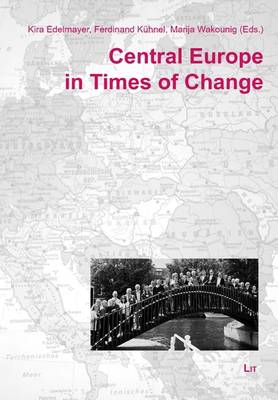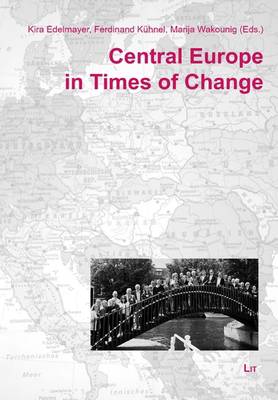
- Afhalen na 1 uur in een winkel met voorraad
- Gratis thuislevering in België vanaf € 30
- Ruim aanbod met 7 miljoen producten
- Afhalen na 1 uur in een winkel met voorraad
- Gratis thuislevering in België vanaf € 30
- Ruim aanbod met 7 miljoen producten
Zoeken
Omschrijving
During the 1970s today's Austrian Federal Ministry of Education, Science and Research supported the founding of the Center for Austrian Studies at the University of Minnesota and the Austrian Chair at Stanford University. These foundings were the initial incentives for the worldwide 'spreading' of similar institutions; currently, nine Centers for Austrian and Central European Studies exist in seven countries on three continents. The funding of the Ministry enables to connect senior scholars with young scholars, to help young PhD students, to participate in and to benefit from the scientific connection of experienced researchers, and to get in touch with the national scientific community. Furthermore, it aims to avoid prejudices, and to spread a better understanding and knowledge about Austria and Central Europe. This volume contains the annual reports of the Center Directors and the papers of their PhD students, which discuss topics on mostly (East-)Central European History from various perspectives and in different centuries. It also includes papers presented at the IVth and Vth Richard Plaschka conference and a featured article from Andrej Rahten on Anton Korosec, the Slovenian founding father of Yugoslavia.
Specificaties
Betrokkenen
- Uitgeverij:
Inhoud
- Aantal bladzijden:
- 372
- Taal:
- Engels
- Reeks:
Eigenschappen
- Productcode (EAN):
- 9783643918161
- Verschijningsdatum:
- 28/02/2026
- Uitvoering:
- Paperback
- Formaat:
- Trade paperback (VS)
- Afmetingen:
- 140 mm x 210 mm
- Gewicht:
- 675 g

Alleen bij Standaard Boekhandel
+ 78 punten op je klantenkaart van Standaard Boekhandel
Beoordelingen
We publiceren alleen reviews die voldoen aan de voorwaarden voor reviews. Bekijk onze voorwaarden voor reviews.






